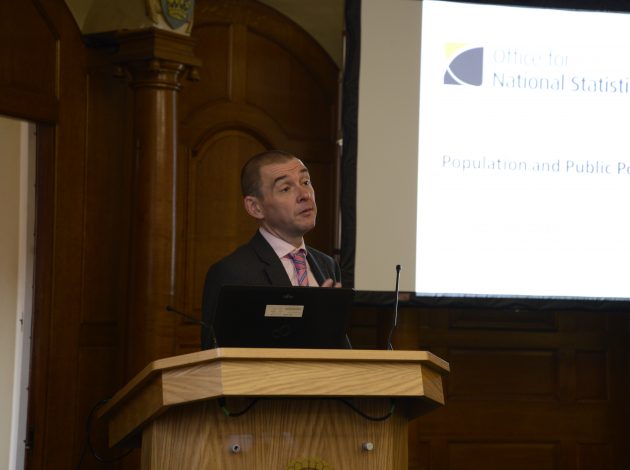Iain Bell explains how a “coalition of the willing” will help develop new information to inform the debate.
“This week ONS held a Population and Public Policy Forum, to set out my ambition as Deputy National Statistician and invite a broad community of stakeholders to debate and contribute to an ambitious programme of work, with a focus in this session on the need for improved migration statistics. The backdrop for all of this is the Better Statistics, Better Decisions strategy which provides the direction of our collective contribution to be more relevant and helpful to users of our statistics. Building an open dialogue was the key objective of the event, eliminating any defensiveness and creating a coalition of the willing.
At Church House in Westminster we welcomed more than sixty stakeholders, a rich combination of experts from government departments, academia and think tanks. Jonathan Portes from King’s College London gave a compelling speech outlining the challenges that face ONS, noting that as the volume of data has increased, our insight that we publish alongside the statistics has not. Jonathan asserted that ‘as better decision making needs better debate’ ONS must step up to the challenge of both presenting what the public needs and wants to know, and ensuring that we accompany this with clarity of opinion and join up the interpretation of various statistics from numerous sources. Simply, it is not enough for us to plan to create even more statistics with the new data; we must create a clear and compelling story that informs the debates which matter to people. We will be where people are with information to inform the debate.
This set the tone well for our subsequent presentations and Q&A. There was an ONS presentation outlining our conceptual framework for migration and the timeline for further experimentation and development. Following this, we opened for questions and discussion. There was particular interest in how we might identify illegal migrants and develop stronger insight into the economic impacts of migration, in trade, for example. It was clear to see the desire for ONS to understand and communicate the complexity of migration. There were also broader questions linked to the Digital Economy Act, our appetite for using commercial data, our approach to reflecting and learning and the impact of the incoming General Data Protection Regulation (GDPR). Key messages I came away with were for us to keep going with this tone and level of ambition, and to continue to engage and listen.
“This is the beginning of a new era for migration statistics and one I am confident we will work together to deliver.”
There is a strong appetite for us to better articulate the gap in migration statistics against what needs to be known. The afternoon session focused on one of the most important aspects of migration – the relationship with the labour market. We heard how both the Resolution Foundation and CIPD both drew from ONS’ data to conduct their own novel analysis and the gaps they identified in the process of doing so. Gerwyn Davies articulated his frustration that too often we fail to look at the ‘full panorama of stats’. This illustrated very well the need for ONS to better set out what we do capture and what gaps we are aiming to fill.
We are aware of the need to change the way in which we publish our outputs, open and receptive to challenge and offers of collaboration. The strong sense of willingness among attendees was striking and we are confident that ONS can move forward within this community to make improvements. Emma Rourke and her team in the Public Policy Directorate will be taking forward this and incorporating feedback into our plan. Thank you to everyone who attended and participated.This is the beginning of a new era for migration statistics and one I am confident we will work together to deliver.”
Iain Bell is Deputy National Statistician for Population and Public Policy
